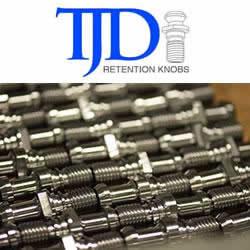New Partnership to Define and Map the Future of Digital Manufacturing Jobs in the United States
The work is part of a broader national initiative overseen by the Department of Defense and other federal agencies to fuel the development of next generation production capabilities and bring jobs back to the United States.
MILWAUKEE, July 20, 2016 /PRNewswire/ -- A new partnership to define and map the roles and skills required by organizations on the forefront of advanced digital manufacturing was announced today between ManpowerGroup (NYSE: MAN) and the Chicago-based Digital Manufacturing and Design Innovation Institute (DMDII), a UI LABS Collaboration. The work is part of a broader national initiative overseen by the Department of Defense and other federal agencies to fuel the development of next generation production capabilities and bring jobs back to the United States.
The partnership pairs top U.S. manufacturing firms, research universities and technical colleges that are part of DMDII with ManpowerGroup, the world's leading innovative workforce solutions provider. By identifying the skills needed for 20 roles on the leading-edge of manufacturing and design, the effort will help align workers, employers and educators to ensure the U.S. workforce is prepared to drive the growth of advanced manufacturing.
DMDII Logo.
DMDII Logo.
"With the rapid pace of technological change it is harder for individuals to keep their skills up to date or for educators to predict what hiring managers will look for three years from now — particularly in industries like manufacturing, where new robotics and data systems are increasingly important," said Sean Costello, Senior Vice President for Experis, North America, ManpowerGroup's professional resourcing and project-based solutions brand. "Our work will create a common language to describe these emerging roles, which will help drive this $3 trillion sector of the economy forward."
The first phase of the project began in March 2016 and runs through Q1 of 2017. Drawing on expertise from DMDII members — such as Lockheed Martin, Siemens and GE — together with government experts and certification agencies, Phase I will identify the roles required for digital manufacturing and then create a framework to better understand and describe them. Phase II, which will run through 2017, will focus on solutions like understanding the gap between projected industry demand and the potential supply of digital design and manufacturing talent, and identifying ways to close that gap.
"Understanding, defining and addressing the skills needs of tomorrow is a challenge," said Caralynn Nowinski Collens, Chief Executive Officer of UI LABS. "By bringing together our digital manufacturing and design expertise and ManpowerGroup's unrivaled workforce insight, we are well-equipped to define the horizon of digital manufacturing, revitalizing and strengthening the competitiveness of U.S. manufacturing."
By defining emerging roles and skills in the digital manufacturing and design space, industry and academia will be able to better align for training and hiring. "This work has implications beyond any one company or organization," said Sascha Fischer, Business Segment Manager of Siemens. "Education remains imperative and is a driver for companies to remain competitive. Most importantly, we must see a workforce trained for the jobs that are critical to the operation of the digital factory of the future."
Job roles are expected to be realized by Q1 of 2017 with a series of strategic engagements from DMDII and partner organizations.
About ManpowerGroup
ManpowerGroup® (NYSE: MAN) is the world's workforce expert, creating innovative workforce solutions for nearly 70 years. As workforce experts, we connect more than 600,000 people to meaningful work across a wide range of skills and industries every day. Through our ManpowerGroup family of brands - Manpower®, Experis®, Right Management® and ManpowerGroup® Solutions - we help more than 400,000 clients in 80 countries and territories address their critical talent needs, providing comprehensive solutions to resource, manage and develop talent. In 2016, ManpowerGroup was named one of the World's Most Ethical Companies for the sixth consecutive year and one of Fortune's Most Admired Companies, confirming our position as the most trusted and admired brand in the industry. See how ManpowerGroup makes powering the world of work humanly possible: www.manpowergroup.com.
About UI LABS and DMDII
UI LABS solves large-scale challenges by bringing University + Industry together with startups and government to accelerate the deployment of emerging technologies through collaboration. UI LABS is developing a portfolio of applied research and commercialization Labs that lead to a return on investment for its partners, improve local, regional and national competitiveness, and transform entire industries.
The Digital Manufacturing and Design Innovation Institute (DMDII) is UI LABS' first Lab. DMDII is transforming American manufacturing to be the most competitive in the world through adoption of digital manufacturing technologies. Learn more at www.uilabs.org and www.dmdii.org.
Featured Product

